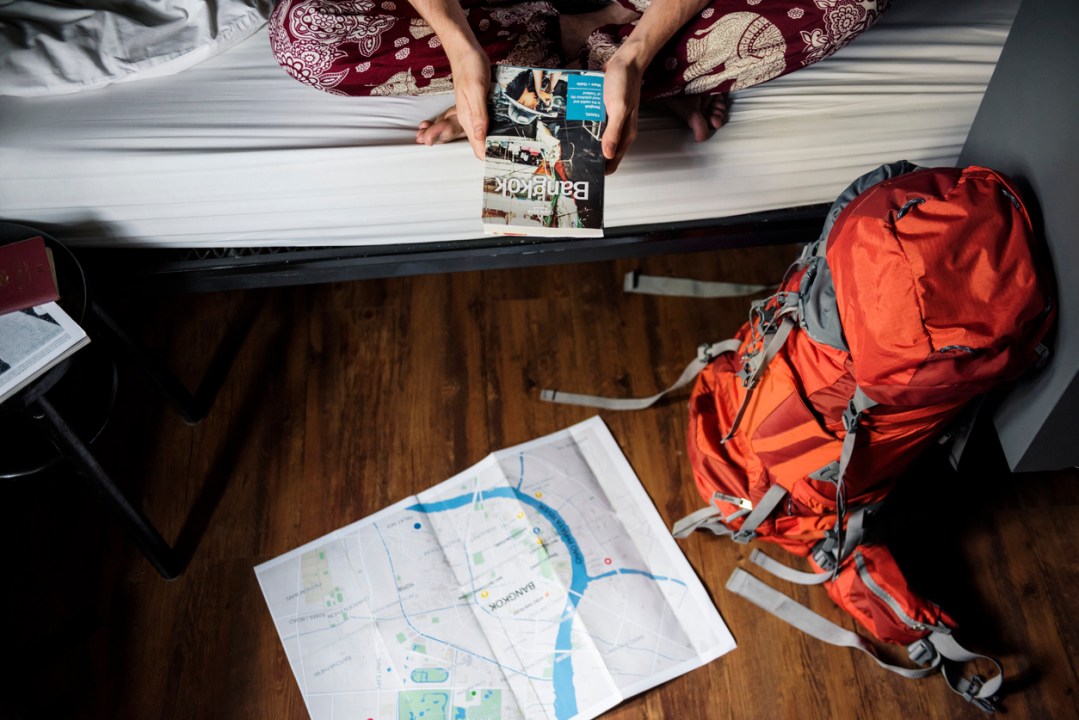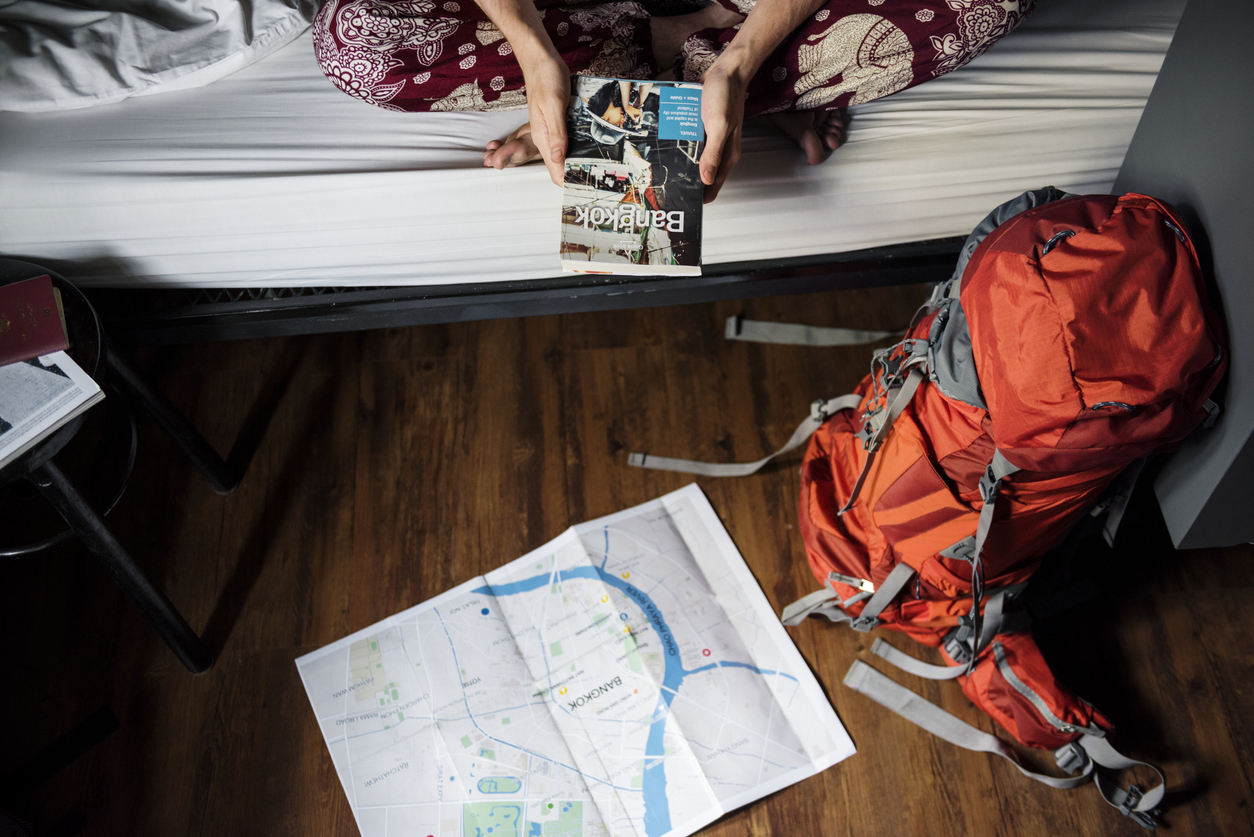No disrespect to the hotel industry: staying in a hotel room, especially when there is someone nice with you, can be exciting and sexy. Staying in a hotel room on your own, though, can be exceedingly sad, boring and unsexy.
Unfortunately, I’ve experienced more of the latter type of hotel stopover (a squalid hotel room in Addis Ababa as the occupants on the other side of the thin walls went at it like gangbusters being a particular abject experience that lingers in the mind). It makes paying a wad of cash for a lonely night even more galling. So thank goodness for hostels, which today are a far cry from the stereotype of being dirty, creepy, dangerous and only suitable for travelling students who don’t mind roughing it and whose youthful immune systems can handle the grime and bacteria.
At my favourite hostel in Seville (it has a rooftop bar and veranda that any budding nightclub owner would kill for) I got chatting with a Brit who had just arrived from Tel Aviv, where he works in IT. He clearly needed to get off his chest how he had ended up in a hostel at the apparently grand old age of 30 (fortunately he’d found a sympathetic audience: I was a decade on from him when my use of hostels rose exponentially, largely due to an 11-month Camino odyssey).
Even his friends in Tel Aviv raised eyebrows when he suggested hostels, he explained. Given it was his first holiday since the pandemic, he was spending five weeks traveling around Europe to make up for it. He’d reasoned that if he stayed at hotels during such a long trip, he risked going bankrupt.
You meet all sorts: anarchists, Jewish death metal rockers, former Albanian prisoners, wandering minstrels, families of Spanish folk dancers
Which is entirely correct. Even with the cheap price of the Seville hostel where we were staying – 18 euros per week night in an eight-bed dorm; about 22 euros at the weekend – multiply that over 35 nights and it adds up. And then you have all the other costs of travel on top of it.
There was a time when staying in a youth hostel at a certain age was suspect. But times have changed – and with them, sadly, the affordability of travel too. The democratising of hostel users has been helped by how the label ‘youth hostel’ is less common than ‘hostel’ nowadays. Furthermore, most hostels have excellent facilities and are run efficiently by friendly, helpful staff. This trend was further spurred during the pandemic when hostels had to deal with extreme cleanliness rules imposed by governments. The resulting habits appear to be sticking around: hostels are often as shipshape as your average hotel, if not more so.
Personal temperament does come into the viability of a hostel stay. Even a tidy, clean and spacious hostel dormitory is still a room full of strangers in front of whom you’ve got to change into your underwear in the morning. I’ve never had a problem with hostels and dorms, though I did undergo the ‘British treatment’.
There were years of boarding school dormitories in which you could see the billowing breath of the other 30 boys hunkering under duvets during cold winter nights. Then there was the Officers’ Mess, which despite the silver and gilt-framed portraits could still get pretty rowdy (bedroom doors used to be broken down with a fire axe if someone dared go to bed too early – ahh, those were the days).
Communal living got even cosier on a tank. Each night the crew would bed down inside a small basha shelter strung up alongside the tank’s running gear. The four of us lay side by side like sardines, my rather large slumbering gunner occasionally throwing a meaty arm amorously over me – his attractive young wife drew admiring looks from soldiers and officers alike.
Beyond the obvious advantage for your wallet, hostels, like the Officers’ Mess, can be wonderfully social and fun. You meet all sorts: anarchists, Jewish death metal rockers, former Albanian prisoners, wandering minstrels, families of Spanish folk dancers.
The variety and age range of guests nowadays makes hostels superb information hubs for local tips – especially those enabling you to penetrate beneath the touristy surface, which tends to be all that hotel receptions proffer – and further travel recommendations and advice. There can be a real sense of Greek demos, with everyone chipping in, sharing and helping each other out. If there are Italians staying, make sure you head to the kitchen at dinner time. Delicious.
There are of course downsides to hostels. The most common one is the snorers. Very occasionally I’ve had to exit the dorm with my sleeping bag and pillow to find a sofa. The greatest peril is bed bugs. I’ve seen people reduced to tears because of them, their bodies covered in nasty bites. Fortunately, bed bugs are rare, especially given the post-pandemic fastidiousness.
Very occasionally you get a hostel that offers a glimpse of a dark, dystopian future – it’s usually a new-build (check the photos online) where no one is talking and everyone is just sitting staring at their phones, the sepulchral stillness only broken when someone picks a nose or scratches a bottom.
But these are the exception to the rule. As with the good Christian virtues of combat food, the simpler, cheaper accommodation option so often has the edge over those glamorous adverts dangled before our luxuriating eyeballs.
A hostel stay can even make you more appreciative of the UK’s political system (yes, really). Chatting with the likes of Argentinians, Chileans and Brazilians reveals what basket-cases their countries are in terms of institutions and governance, with hyperinflation, corruption and personal malfeasance the stock trade of governing classes.
Hostel living also gives the lie to those who claim ‘you’ll own nothing and you’ll be happy’. The political thinker Hannah Arendt spoke of totalitarianism as not necessarily resulting from an all-powerful state, but rather from the erasure of the separation between private and public life. We are only ‘free’, she argued, in so far as we have some control over what people know about us and the circumstances in which they come to know such details.
In a hostel, you can bounce from room to room throughout the day and never manage to find a moment’s privacy. Eventually, as I have experienced, you can be driven to seek out the lavatory just to be able to sit down and know you can close and lock the door to unwanted entry – only to find it already in use or having been used and left in enough of a state to put you off hanging around.
Hostel living has a lot going for it. But you check out with a better appreciation of those arguments about the relationship between private property and liberty. After all, an Englishman’s home is his castle. Ultimately, give me a tiny castle and a bacon bap at breakfast over a communal utopia serving global cuisine.







Comments